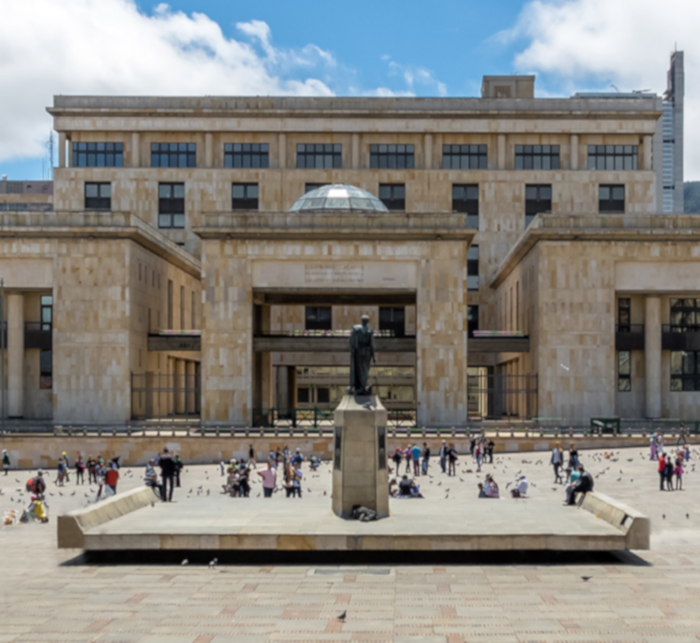-
04 July 2019
Category : Opinion
Towards more open and transparent justice in Colombia
The Open Justice Strategy of the State Council of Colombia, supported by the ACTUE Colombia project, has received a stellar reform award.
 The Open Justice Strategy of the State Council of Colombia, supported by the ACTUE Colombia project, has received a stellar reform award.
The Open Justice Strategy of the State Council of Colombia, supported by the ACTUE Colombia project, has received a stellar reform award.Early last month, I was fortunate enough to attend the 6th Global Summit of the Open Government Partnership in Canada , a gathering that brought together two thousand people from 79 countries and 20 local governments who, along with civil society organizations, academics and other stakeholders, make up the Open Government Partnership (OGP). This year, the Summit revolved around three strategic priorities: participation, inclusion and impact.
During the inauguration, and to my surprise, the initiative that we supported in the ACTUE project – a project managed by FIIAPP with EU funding between 2014 and 2018 – was displayed on giant screens: the Open Justice Strategy in the State Council of Colombia as one of the “ Stellar Reforms” selected in the last OGP cycle. It was very exciting to be able to experience that tangible impact of one of our projects, something that we rarely get to experience. I was even more thrilled than when I saw the Canadian Prime Minister Justin Trudeau live, which is really saying something. And for good reason, too. These 12 commitments have been selected by the Independent Review Mechanism from among hundreds of others for showing evidence of preliminary results that mean significant advances in relevant and transformative political areas .
The Open Justice Strategy in the Council of State of Colombia has, for the first time, allowed the Court to begin publishing its previous agendas and decisions, as well as information on possible conflicts of interest of judges and administrative staff; essential aspects of public accountability, as well as enabling citizens and civil society to do their work of social control. In the long term, these changes can reduce corruption in justice institutions and allow them to regain the trust of citizens . Justicia Abierta is one of the political tendencies in open government that is gaining greater traction, given the major impact that its actions can have on citizens; In particular, access to justice makes it possible to exercise other rights. In addition, this sectoral action contributes directly to the advancement of the 2030 Agenda through goal 16, Peace, Security and Solid Institutions.
The ACTUE Colombia project was supporting the Transparency Secretariat of Colombia in the preparation of its OGP action plans, as well as civil society organizations, by using specialized technical assistance to promote the creation of a space for dialogue between administrations and civil society to define their own priorities in open government .
This is a good example of the positive impact that delegated cooperation can have, thanks to the flexibility and innovation they bring to our partners and the technical assistance on demand that we carry out.
About the ACTUE-Colombia project
The Anti corruption and Transparency Project of the European Union for Colombia (ACTUE-Colombia) has supported Colombian institutions in the implementation of key measures for a Open Territorial Government with the aim of making progress in the prevention of and fight against corruption both at the national and territorial levels. To this end, the project supported the creation of conditions for the fulfilment of international commitments, the strengthening of social control, the promotion of the co- responsibility of the private sector, and the generation of cultural and institutional changes .
The project is financed by the European Union and managed by FIIAPP in coordination with the Secretary for Transparency (ST) and Public Function (FP). It has assisted three regional governments, six city councils and two hospitals in areas such as applying the Law on Transparency and Access to Public Information, drafting Anti-Corruption and Citizen Information Plans (PAAC), fostering accountability and promoting public participation. It has thus helped officials to understand that the right to transparency and access to information is an essential right on which other rights depend. It has increased their awareness by institutionalizing advances in active transparency and their knowledge of how to identify and manage the risks of corruption.
Carolina Díaz, legal technician in the area of Justice and Security at FIIAPP and, between 2014 and 2018, member of the ACTUE Colombia team
The views and opinions expressed in this blog are the sole responsibility of the person who write them.






